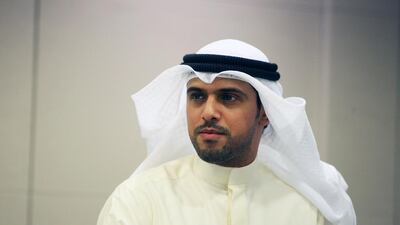Browse the International Prize for Arabic Fiction’s website, and you will see that one of its main aims remains unchanged from when it was launched 10 years ago: “To encourage the translation of Arabic literature into other languages.”
The subtext here was that Ipaf hoped it might discover an Arabic-language literary star who might be spoken of in the same hallowed terms as, say, Japanese writer Haruki Murakami or Norwegian Karl Ove Knausgard.
So where are the 11 winners (2011’s prize was shared) now and has an Ipaf win increased their international profile?
It is a scrappy picture. Not all the winners have been translated into English which, although translation into other languages is also important, is what Ipaf promises to subsidise.
This means it is difficult to judge what Rabee Jaber's 2012 win for The Druze of Belgrade has meant for him, although it is worth noting his book has been translated into 10 other languages. In fact, we are yet to see English translations of any winning book since 2014 – although the fact that major publishing house Penguin is due to publish Ahmed Saadawi's Frankenstein In Baghdad next year is significant. Last year's winner, Rabai-al Madhoun's Destinies: Concerto of the Holocaust and the Nakba, is due for release this year.
Of course, some of the difficulty in capitalising on an Ipaf win is logistical. It takes time to translate and publish a novel. It was obvious that Saud Alsanousi's 2013 winner, The Bamboo Stalk, would be one of the more popular and accessible Arabic novels in translation, but it took more than two years from winning to publication by Bloomsbury. Its Arabic follow-up, Grandma Hessa's Mice, has been a bestseller in the Arab world, which seems to suggest Ipaf might be helping authors closer to home, if not overseas.
Similarly, there was a lot of excitement about Yousef Ziedan's 2009 winner, Azazeel, being picked up by a major publisher – Atlantic – but it took three years to appear on shelves in English. As a result, any goodwill, or indeed profile of any sort, generated by the award had been lost – although the historically dense Azazeel was perhaps an odd choice for Atlantic anyway.
All of which is in no way a criticism of Ipaf itself. It might have taken five years for Raja Alem's Dove's Necklace to reach English-speaking readers but when it did, her profile skyrocketed. A woman talking positively about life in Saudi Arabia? Yes please.
So it is perhaps more in the cumulative raising of the profile of Arabic fiction that Ipaf has had the most success, rather than with specific authors.
The fiction coming out of Iraq and Syria, whether Ipaf winners or not (the current interest in The President's Gardens by Muhsin Al-Ramli being a case in point) is highly encouraging.
In the end, that should be what everyone celebrates, rather than the personal victories of individual authors.
artslife@thenational.ae

